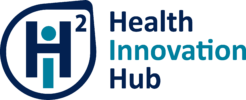The University of Toronto (UofT) recently ranked second in the world for clinical medicine, and earned top ten spots for neurosciences, social sciences, psychiatry, psychology, biology and biochemistry. The rankings, based on research output and impact, highlight the University’s enormous scope of talent and its continued capacity to drive meaningful change.
The boundless talent and ideas within universities offer tremendous opportunity to drive problem solving for macro level problems. The talent and research within a medical school can be mobilized to create clinical impact in hospitals, community health clinics and at government levels. How can this talent be unlocked and translated outside university campuses? The answer, in part, is research translation and health commercialization.
On September 17th, more than 200 guests gathered to celebrate the ten-year anniversary of the Health Innovation Hub (H2i). As UofT’s health-focused campus-linked accelerator, H2i has spent the past decade supporting the translation of research into healthcare impact.
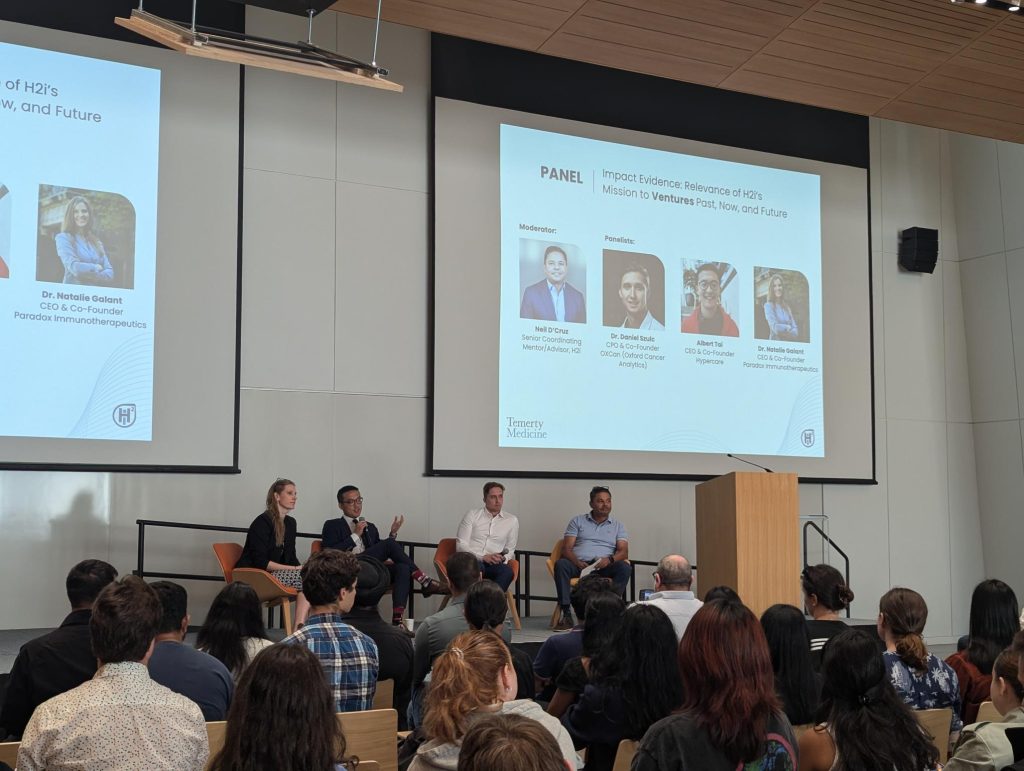
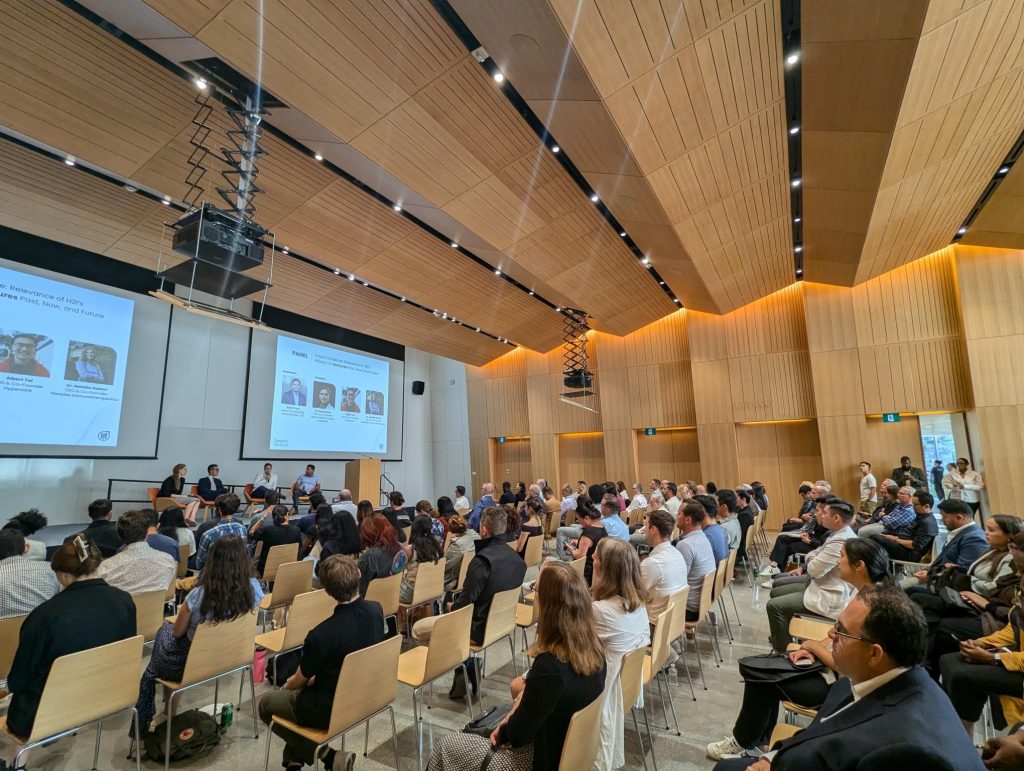

To date, H2i has fostered the maturation of 750+ health ventures, and facilitated their combined economic impact of $520+ million. Their entrepreneurial education is delivered through 140+ events a year, 2600+ annual mentorship hours from 160+ mentors, and collaborations with 118+ industry partners.
The ten-year celebration not only celebrated these successes but invited guests to imagine the next decade of health innovation and examine the case for commercialization training support.
The event opened with welcome remarks from Dr. Leah Cowen, Vice-President, Research & Innovation, and Strategic Initiatives at UofT. Dr. Lisa Robinson, Dean of the Temerty Faculty of Medicine, then provided an insightful address which highlighted why universities should be concerned with research translation and health commercialization: “Because the future of healthcare demands it.”
We are tasked not just with discovering new treatments but with ensuring they reach the patients who need them in a timely and affordable manner. A healthy commercialization agenda is crucial to bridging this gap. It ensures that our research doesn’t just sit on a shelf but becomes the foundation of new diagnostics, therapies and technologies that can be scaled, distributed and accessed globally.
Dr. Lisa Robinson
Next, three panels explored the unique perspectives on the relevance and importance of health commercialization supports like H2i, through discussions featuring founders, mentors, and partners. Finally, H2i executive team member and Temerty Health Nexus Chair Dr. Kamran Khan provided a concluding address. Drawing on his experience as a physician, researcher and founder, Khan emphasized the ever-increasing demands to our healthcare system and the necessity of commercialization in meeting these demands to improve population health and the efficiency of our healthcare system.
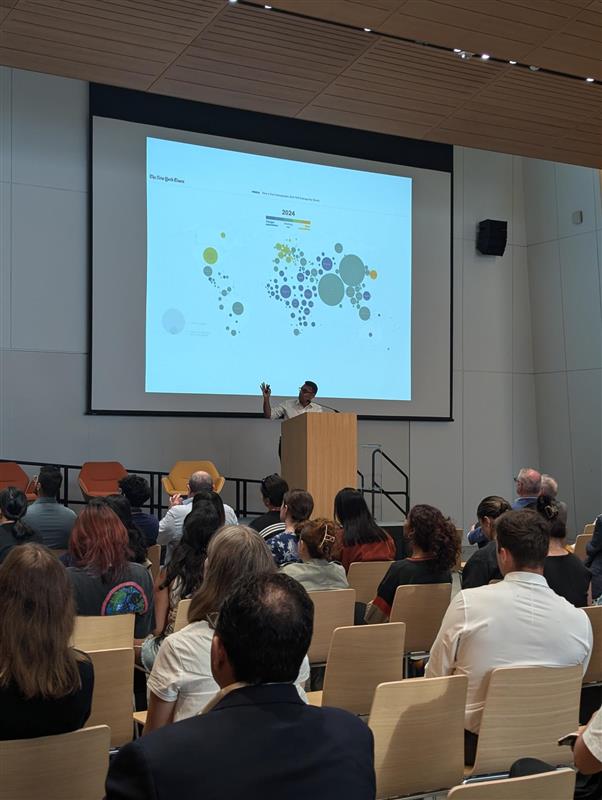
As H2i reflects on the past ten years, the community is honoring the contributions of the team that has built H2i over the past decade, and in particular one of the early Associate Directors, Andris Lauris, who recently stepped into retirement.
When Lauris first joined H2i in 2015, the team was supporting just seven early-stage ventures, in stark contrast to the 248 ventures H2i worked with in its tenth year. Throughout his career, Lauris felt driven to help commercialize Canadian intellectual property (IP) and bridge funding gaps for health innovation. Bringing his experience from startups, IP initialization and electrical engineering, Lauris was instrumental in developing H2i’s 10-point plan for venture development, in building H2i’s levelled system and in creating many of the tailored support programs.
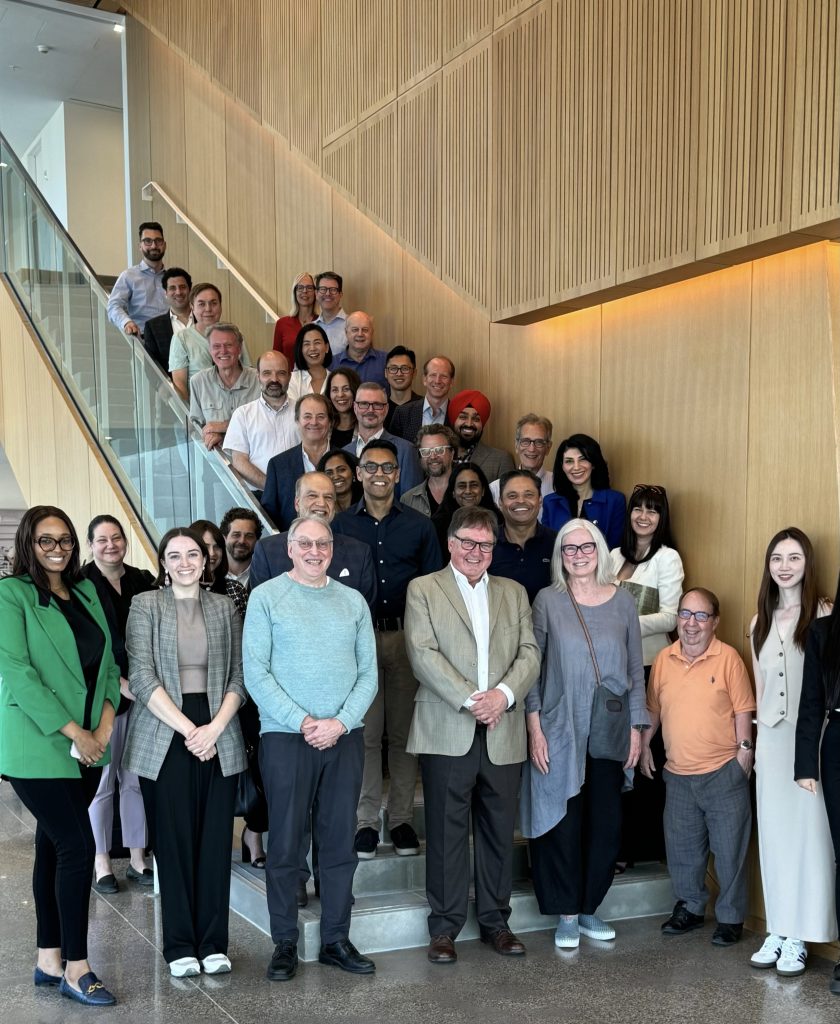
In June of 2024, Lauris’ countless achievements and contributions were highlighted when the H2i mentor community celebrated his vital leadership in growing and guiding the H2i community. To Lauris, “focused mentorship from industry helps companies to fill gaps in their growth plan and ensures they can thrive as they scale into the market. That 1-1 mentorship with mentors who come from so many areas of expertise across fields is invaluable.”
With expertise and perspective from many years in the health innovation space, Lauris has observed a significant shift in the valuing of the life sciences, with growing organizational and structural supports. As Lead Mentor to H2i’s Level 3 & 4 ventures, Lauris has been vital in helping ventures access non-dilutive funding, equity and revenue. Seeing the increase in funding and support to early-stage health ventures, “always made my day,” Lauris shared.
Looking to the future, Lauris remarked on the strength and growth of the H2i team.
It comes down to team: having the right people to do the work and the right leader to support it. As the team grows, it broadens the interest, expertise and drive which helps H2i continue to grow and thrive. It’s a great team. We get a lot, a lot done with a little bit. It’s always been impressive to see and has been a privilege to be a part of.
Andris Lauris
As the next decade begins, the H2i team and community are ready to mobilize the rich talent of this ecosystem to continue to foster a thriving, efficient, and resilient Canadian health system fueled by scientific and technological innovation, creative business models, and human entrepreneurial spirit.
